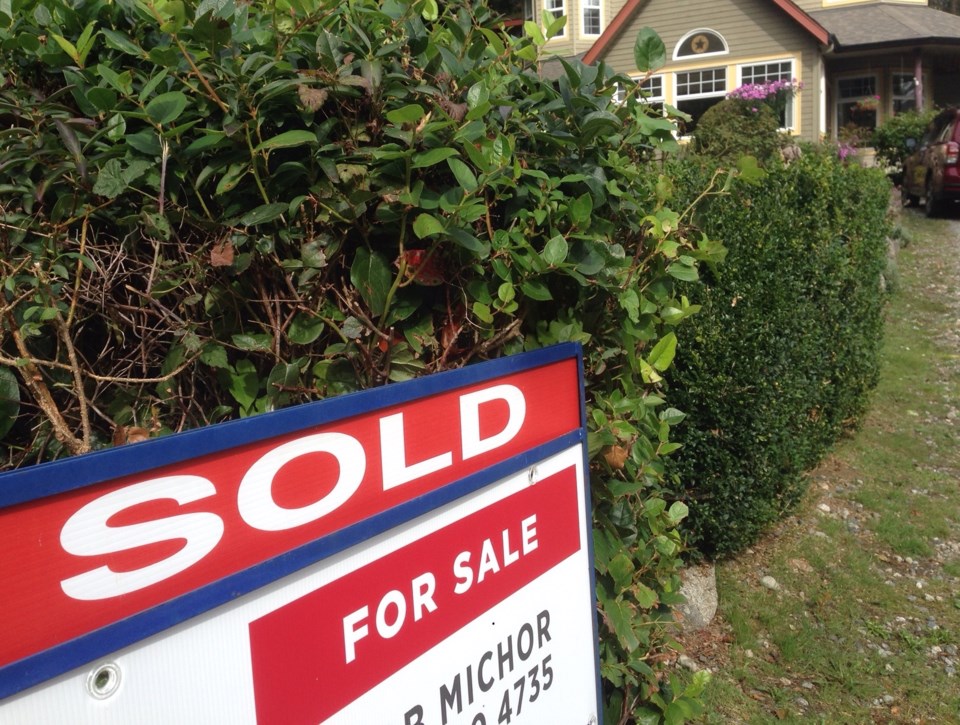Vancouver-based Central 1 Credit Union is among those forecasting that the “exceptionally strong” 2020 housing market in B.C. will continue to surge, with average prices rising 5.6 per cent in 2021 and a further 4 per cent in 2022.
The outlook is in contrast to the Royal Bank, which is calling for an 8 per cent decline in Canadian home prices next year; and both Canada Mortgage and Housing Corp.(CMHC) and Moody’s, which are predicting up to double-digit drops in prices.
Real estate brokerage Royal LePage, however, contends the current strong housing sales and rising prices will continue into 2021, led by Metro Vancouver.
In a release December 15, Royal LePage said the average price of a home in Canada will increase 5.5 per cent year-over-year to $746,100 in 2021.
Phil Soper, Royal LePage president and CEO, said, “With policy makers all but promising record low interest rates to continue, the upward pressure on home prices will continue.”
Royal LePage forecasts that Vancouver will see the second-largest increase in average home prices in 2021, increasing by 9 per cent to $1.26 million, when compared to this year.
Central 1 Deputy Chief Economist, Bryan Yu in Central 1’s latest B.C. Housing Outlook: 2020-2022, released December 21, is also quite bullish on B.C.’s housing market.
“The rebound in housing demand from pandemic-induced lows in the spring has been spectacular,” said Yu.
He noted that average home prices in B.C. were up 13 per cent year-over-year in October, with the strongest gains recorded in the Interior and Island markets due to increased demand for recreational properties
“The median price of a home in B.C. is forecast to rise by 9.3 per cent (to $585,000) this year, with a further 5.6 per cent increase (to $615,000) expected in 2021, followed by a 4 per cent increase (to $640,000) in 2022,” Yu forecasts. “ Annual resale transactions are forecast to see a 20 per cent increase this year, reaching 85,080 units, followed by a further rise of 12 per cent in 2021 to 95,200 units.”
Extremely low mortgage rates are a key catalyst for surging home sales, the Central 1 outlook confirmed.
“ Elevated liquidity at financial institutions will likely mean aggressive mortgage pricing through the spring to compete for market share, driving rates even lower and maintaining rock bottom rates until mid-2021,” Yu said.
HSBC drew headlines recently with a 0.99 per cent five-year variable mortgage rate, the lowest in Canadian history, and it is not uncommon for mortgages to be offered at sub-2 per cent.
Housing demand will also lead to a rebound in B.C. housing starts, which have dropped 21 per cent this year, compared to a year earlier, which Yu said can be traced to the pandemic, and the foreign home buyer tax.
“Total housing starts are forecast to rise 6.5 per cent in 2021 to 37,700 units, increasing by a further 4.5 per cent in 2022 to 39,400 units, “ he now predicts.
Some are not so confident in B.C.’s housing outlook.
“There are zero fundamentals supporting the rise in the housing market, other than the Bank of Canada's printing press and people's fears of a currency continuing to lose purchasing power,” said Vancouver realtor and analyst Steve Saretky.
Citing "tremendous risks" from the COVID-19 pandemic, Canada Mortgage and Housing Corp. said it stands by its forecast, first issued in May, that average Canadian home prices will fall between 9 per cent and 18 per cent from pre-pandemic levels before beginning to recover in the first half of 2021.
In October, CMHC chief economist Bob Dugan reiterated that forecast in a call with journalists, although he cautioned that it’s difficult to predict the "peaks and troughs."
Royal Bank noted that Vancouver has the worst affordability rate in Canada, with 78 per cent of the average household income required to afford the payments on a typical home. The RBC “best case scenario” is for home prices to flatline in 2021.



